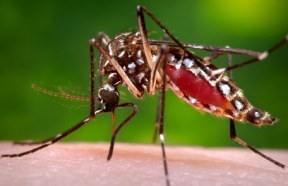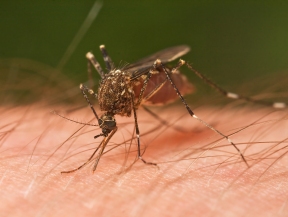
As we enter mosquito season, the Illinois Department of Public Health (IDPH) is reminding Illinoisans of the diseases mosquitoes carry and the best ways to avoid being bitten. West Nile virus is transmitted through the bite of an infected Culex pipiens, “house” mosquito. Mild cases of West Nile virus infections may cause a slight fever or headache. More severe infections are marked by a rapid onset of a high fever with head and body aches, disorientation, tremors, convulsions and, in the most severe cases, paralysis or death. Symptoms usually occur from three to 14 days after the bite of an infected mosquito. However, four out of five people infected with West Nile virus will not show any symptoms. People older than 50 are at higher risk for severe illness from West Nile Virus. Precautions include practicing the three “R’s” – reduce, repel and report.

- REDUCE – make sure doors and windows have tight-fitting screens. Repair or replace screens that have tears or other openings. Try to keep doors and windows shut.
- REPEL – when outdoors, wear shoes and socks, long pants and a long-sleeved shirt, and apply insect repellent that contains DEET, picaridin, oil of lemon eucalyptus or IR 3535, according to label instructions. Consult a physician before using repellents on infants.
- REPORT – report locations where you see water sitting stagnant for more than a week such as roadside ditches, flooded yards, and similar locations that may produce mosquitoes. The local health department or city government may be able to add larvicide to the water, which will kill any mosquito eggs.
Additional information about West Nile virus can be found on the IDPH website.











